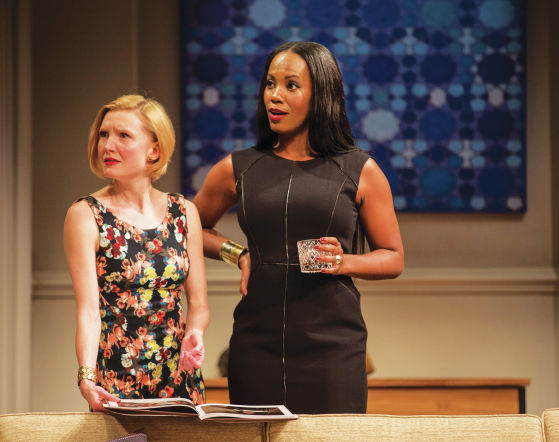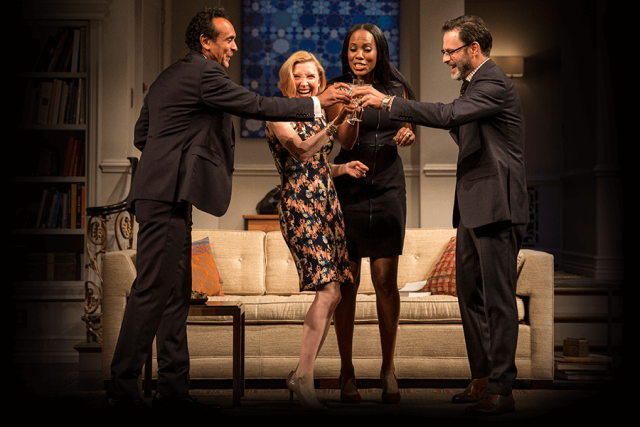

Immigrants arriving in the United States are usually eager to embrace the reinvention promised those seeking to make our country their home. When this goal is not quickly achieved, the tendency is for their children—lacking first-hand memories of their former society and why their parents left it—to romanticize the old customs. A few more generations are necessary to render families comfortable with hyphenated ethnic designations, celebrations of ancient holidays and vacations (safely protected by North American passports) in the land of their ancestors.
Amir Kapoor, born Abdullah, is first-generation South Asian, his name change reflecting the 1947 restructuring of India's western border to create the nation of Pakistan. He is now a successful corporate attorney, in line for partnership in a prestigious law firm. His Anglo-Caucasian wife, Emily (born Hughes), is an artist heavily influenced by Islamic iconography and is currently being considered for exhibition at the prestigious Whitney museum. Their nephew, Abe (born Hussein), has succumbed to second-generation nostalgia, speaking fondly of "my people"—as distinct from his present company—and pressuring Amir to involve himself in the high-profile case of an imam imprisoned under the Patriot Act.
One evening, Jory Brathwaite and her husband, Isaac—co-worker to Amir and curator at the Whitney, respectively—come to dinner and the conversation proceeds to go as wrong as it can go.
Ayad Akhtar's play is not without symposial manipulations designed to keep characters from abandoning the problematic discussion altogether. Once we accept that what we are viewing is not meant to reflect real-life human behavior, but human thought, we can focus on the questions raised by Akhtar's spokespersons. Is Emily's xenophilia an unconscious refutation of her WASP privilege? Was Isaac's marriage to African-American Jory fueled by similar unease with tribal myths, and did she see in his rebellion a tool facilitating her entry into the power elite? Is Amir correct to reject the bigotry of his forebearers, self-loathing often being the spur to self-improvement? When we gasp in horror at his venting his frustration on his spouse, as the Quran dictates, do we recall how many non-Muslim husbands have also done so? Akhtar's play draws no conclusions, its chief purpose being to "get people talking," as the buzzphrase goes. What you take away from hearing things hitherto unsaid, but that the author feels should be said, depends largely on what you bring, but next time you see crowds on St. Patrick's Day wearing badges proclaiming "Kiss me! I'm Irish!," take time to appreciate the decades of suffering and hardships upon which such small freedoms are founded.
